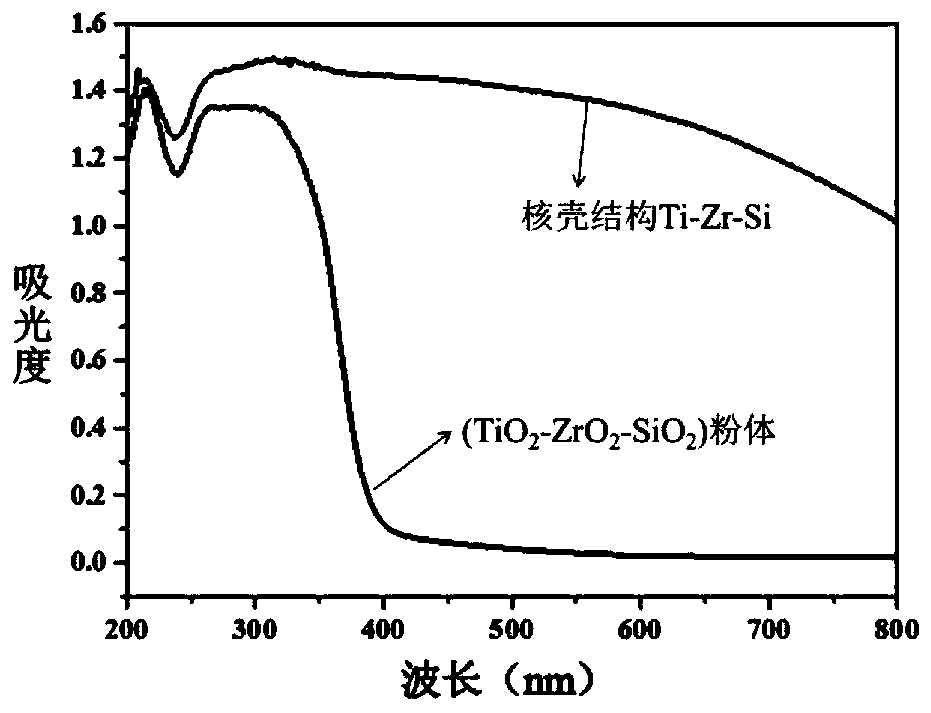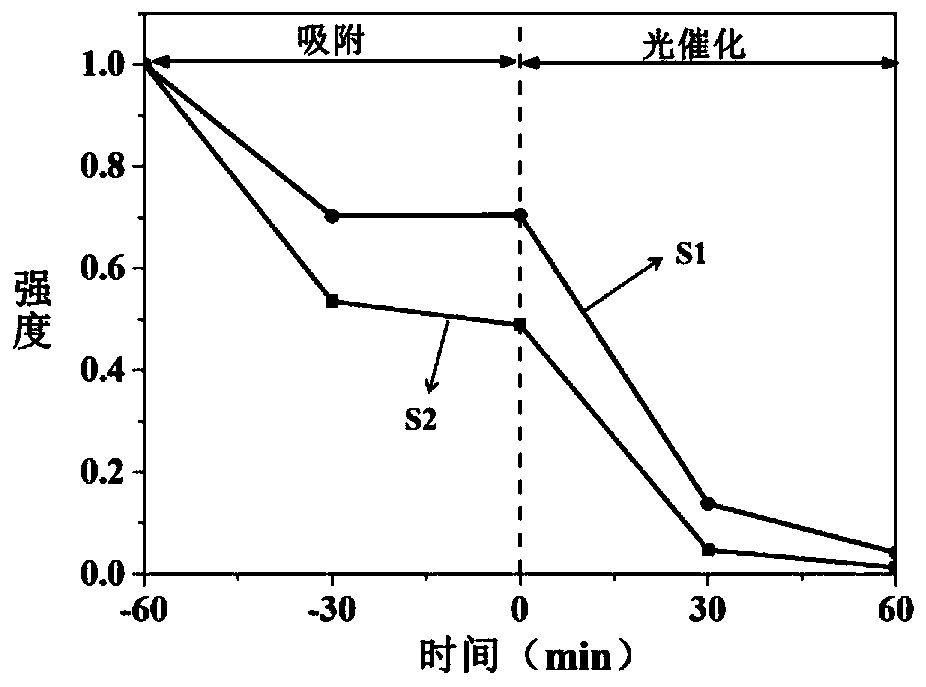Preparation and application of core-shell structure Ti-Zr-Si composite photocatalyst with strong absorption effect on incident light
A ti-zr-si, tio2-zro2-sio2 technology, applied in the field of inorganic non-metallic materials, can solve the problem of few incident light reports, achieve high light absorption, no secondary pollution, and is conducive to separation.
- Summary
- Abstract
- Description
- Claims
- Application Information
AI Technical Summary
Problems solved by technology
Method used
Image
Examples
Embodiment 1
[0027] A preparation process for a core-shell structure Ti-Zr-Si composite photocatalyst with strong absorption of incident light, the specific process is as follows:
[0028] (1) Step 1: In the case of continuous magnetic stirring, add alkaline reagent ammonia water to 20 mL of deionized water, adjust the pH=7 to 10, dissolve zirconium oxychloride and metal ion complexing agent in the above deionized water, and prepare A uniform and transparent solution with a zirconium ion concentration of 0.05moL / L is formed, namely the zirconium precursor solution. Wherein, the mass ratio of zirconium oxychloride and metal ion complexing agent is 0.5:2. Dissolve ethyl orthosilicate in absolute ethanol to prepare ethyl orthosilicate solution. Titanium sulfate was dissolved in deionized water to prepare a titanium solution. The addition amount of ethyl orthosilicate and titanium sulfate is determined according to n(Ti):n(Zr):n(Si)=6:1:4. Under the condition of continuous magnetic stirring...
Embodiment 2
[0031]A preparation process for a core-shell structure Ti-Zr-Si composite photocatalyst with strong absorption of incident light is the same as in Example 1 except that the calcination time after impregnation is different.
[0032] In this embodiment: the calcination temperature after impregnation is 400°C.
[0033] figure 1 It is the white (TiO2) prepared in Example 2 2 -ZrO 2 -SiO 2 ) UV-Vis absorption spectra of (a) and core-shell structure Ti-Zr-Si composite photocatalyst (b). It can be seen from the figure that the white (TiO 2 -ZrO 2 -SiO 2 ) The composite photocatalyst hardly absorbs the incident light with a wavelength greater than 400nm. The core-shell structure Ti-Zr-Si composite photocatalyst has a high absorption intensity in the entire visible light range, indicating that it has a strong absorption in response to visible light.
[0034] figure 2 is white (TiO 2 -ZrO 2 -SiO 2 ) (S1) and photocatalytic degradation of rhodamine B by the core-shell struct...
PUM
 Login to View More
Login to View More Abstract
Description
Claims
Application Information
 Login to View More
Login to View More - R&D
- Intellectual Property
- Life Sciences
- Materials
- Tech Scout
- Unparalleled Data Quality
- Higher Quality Content
- 60% Fewer Hallucinations
Browse by: Latest US Patents, China's latest patents, Technical Efficacy Thesaurus, Application Domain, Technology Topic, Popular Technical Reports.
© 2025 PatSnap. All rights reserved.Legal|Privacy policy|Modern Slavery Act Transparency Statement|Sitemap|About US| Contact US: help@patsnap.com


